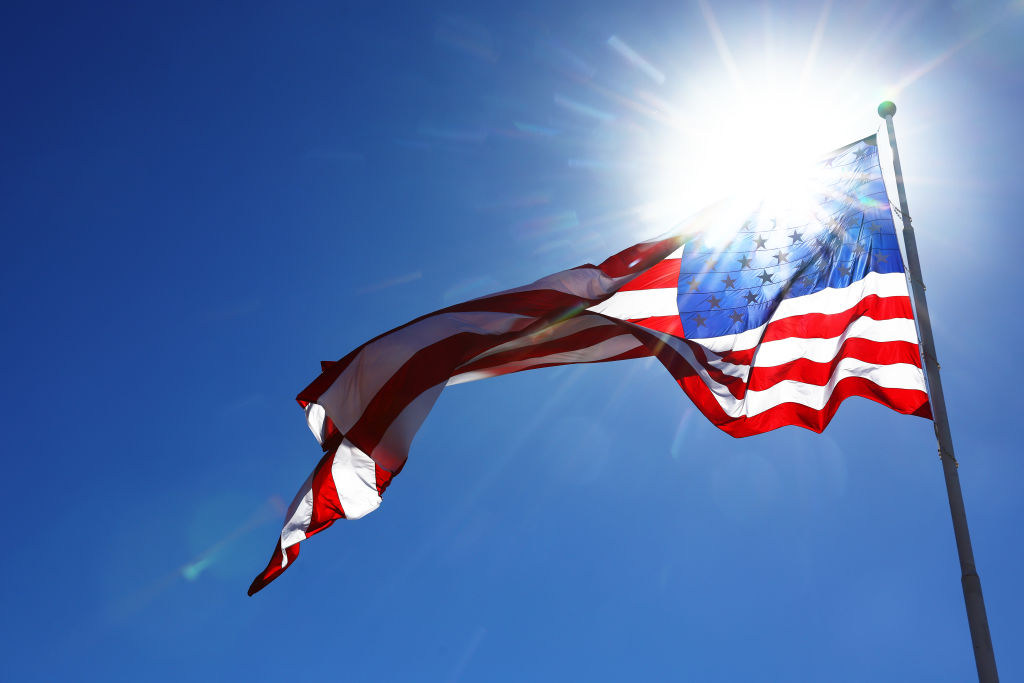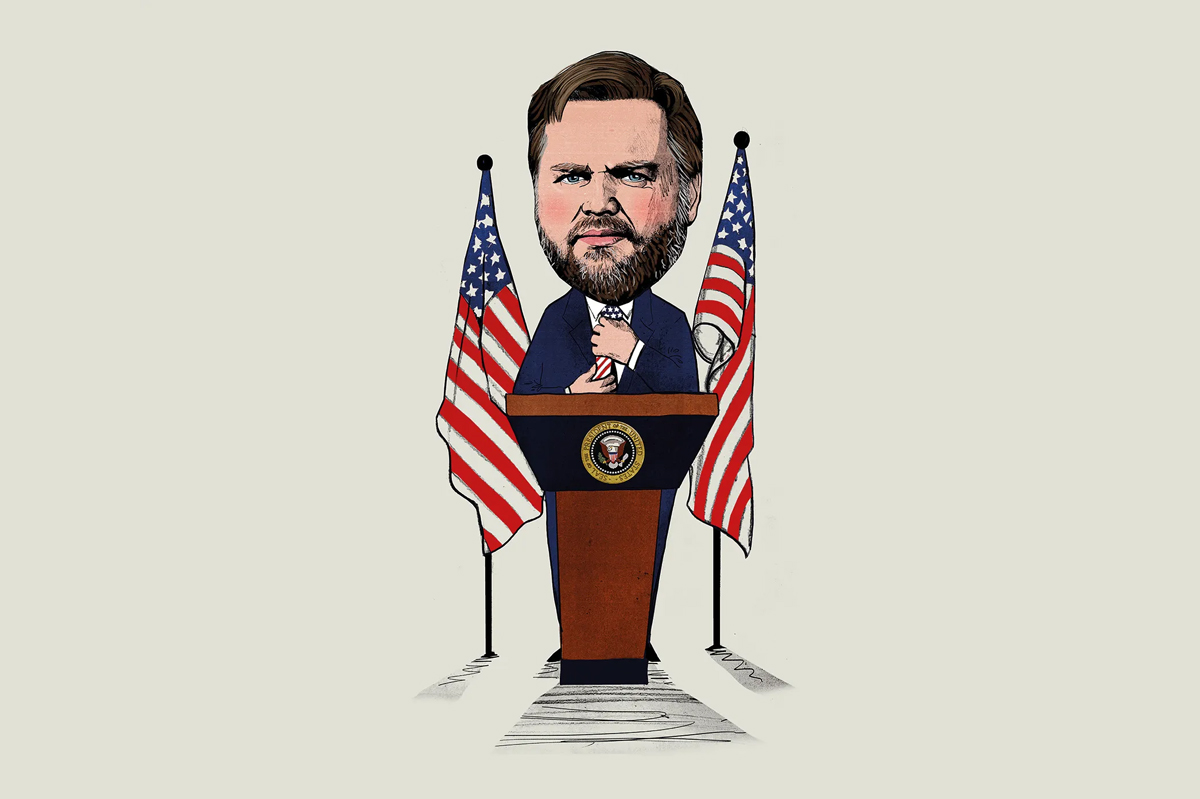I wouldn’t have thought a book about America’s decline would cause me to laugh out loud, but having enjoyed its author Matt Purple’s work for years now (full disclosure: he’s a personal friend and former Spectator colleague), I should not have been the least bit surprised that his debut book is as funny as it is insightful.
Decline from the Top: Snapshots from America’s Crisis and Glimmers of Hope is a veritable joy to read. Though he declares himself to be a “cranky conservative,” Purple’s humor and wit offer a diagnostic examination of the American condition that exudes warmth and obvious heartfelt concern for our nation’s wellbeing. Rather than point fingers and rant, as so many sociopolitical doom-and-gloom books do, Decline from the Top laughs with Americans, not at them, in the style of a big brother who teases his younger siblings not because he’s cruel, but to point out their flaws gently, with the aim of having them correct themselves.
Purple takes on the role of an elder statesman advising the next generation. His book begins with an explanation of his point of view and that of his fellow millennials, whom he labels “the Apple Jacks Generation” — those born between 1980 and 1996 who came of age along with that “nifty invention called the World Wide Web.” The Apple Jacks Generation, as a Nineties ad for the cereal shows, were hip and savvy. We knew it all — even why Apple Jacks didn’t taste like apples. When millennials were growing up, the Cold War had just ended, the Berlin Wall had come tumbling down, and, as Purple puts it, “Without the commies getting in our way, we were free to do what we do best: carpet the globe with our aircraft carriers, Doritos Locos Tacos and DVDs of the twenty-sixth American Pie movie.”
We millennials were the generation all the corporations were marketing to; like our country, we were at the top, and we would be young and important and know everything forever. Now, Purple relates, millennials have “become spectators to decline.” He writes that once “Americans looked confidently to the future,” but “today, we’re gloomy, unsettled, haunted by visions of a country coming apart… The average young American in 2024 doesn’t exude optimism. He hears about the American dream and wonders where it’s gotten off to.”
The book presents plenty of profound cultural observations backed with ample data: Purple chronicles how the internet went from being a useful information and online shopping tool “housed in a desktop behemoth in the living room corner” to following “you around in your pocket, vibrating and buzzing until you wanted to hurl it into a volcano.” And with it came chat rooms and blogs, which eventually “conceived the Antichrist,” Twitter, where “everyone was chucked into the same bear pit” and “not only could you accuse someone you’d never met before of being an ass-clown, you could do so in real time and in front of the entire world.”
For millennials, writes Purple, earlier technology “was still subordinate to us rather than the other way around.” Nowadays, of course, “the internet is both everywhere and forever, a permanent and instantly accessible rap sheet.” It’s also responsible in varying degrees for the “smartphone surveillance state,” the meteoric rise of self-centeredness, conspiracy theories and the mistrust and harm they cause, as well as the ubiquity of online porn, loneliness and our declining life expectancy. He blames Twitter in particular for stripping “our national conversation of its sympathy,” for dehumanizing us and leading us to forget some cardinal values: “charity, forgiveness, love, modesty, privacy and self-restraint.”
Purple further captures the American spirit with relatable accounts of the destructive effects of deindustrialization that lead to the “hollowing-out of flyover towns” like the one he grew up in, of the “abject usefulness of Congress” and in an especially eye-opening chapter, what our lack of interest in returning to the Moon says about our national identity.
For all this, Purple retains an upbeat energy that enables him to consider potential answers with the aid of a tapestry of facts and anecdotes. His writing is powerful and memorable. My favorite line illustrates how the US overcame the anti-American trope that our beer “tastes like piss.” He writes: “The average beer consumer was no longer a portly fella in a Dallas Cowboys T-shirt sitting on the couch. He was a pencil-thin mustachioed hipster murmuring, ‘mmm, hints of pinecones and formaldehyde,’ as he sniffed his octuple-imperial Gulf Coast IPA from out of a tulip glass.”
Decline from the Top connects a lot of dots while somehow managing to make deeply perceptive reflections seem like light reading. Purple acknowledges that “the complete picture” of American decline is “complicated and not yet finished” and observes, “We got here through decisions we made freely, and we may yet get out of here through decisions made more wisely.”
The first wise decision we can all make is to read this book, absorb its wisdom and start treating one another with the empathy and good humor the author exhibits in spades.
This article was originally published in The Spectator’s January 2025 World edition.


























Leave a Reply